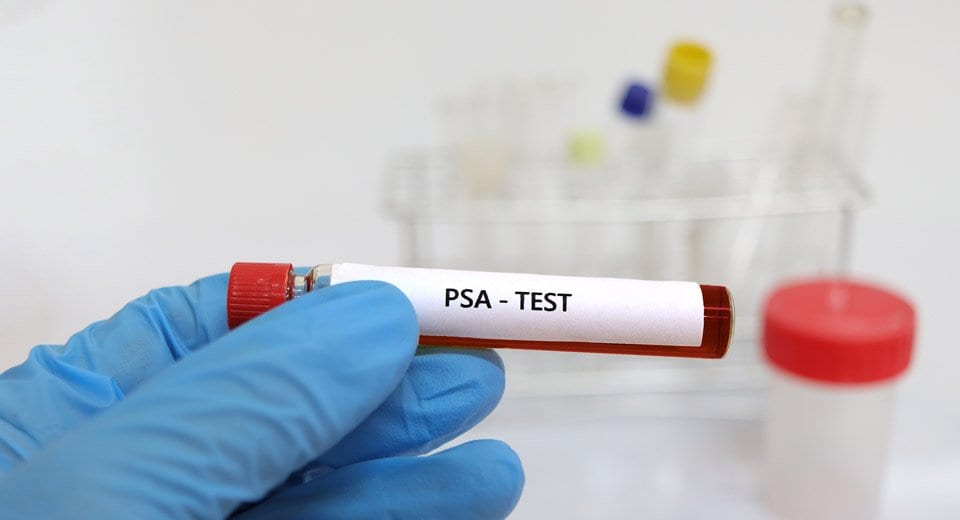Well-known Cape columnist talks about living with prostate cancer

I’ve been a teacher for over 45 years, an interfaith minister for almost as long, a columnist for the Cape Cod Times, husband to an absolutely astonishing woman and the father of two daughters. I’m also 78 years old and have stage 4 prostate cancer.
For the last several decades, it’s been no secret to my doctors that I have a prostate the size of a softball (I’m only half-kidding here) and that because of its size, my PSA numbers have been eye-wateringly high. I’d been biopsied twice previously and come out clean.
For those of you unfamiliar with it, let me give you a crash course on what PSA (Prostate-Specific Antigen) means. In healthy men with normal-sized prostate glands, this naturally-produced substance can be used to give us a snapshot of prostate health. You want the number to be low, from zero to 3. When men get an annual health check, PSA is one of the things their doctors will be looking at. If the number creeps up to 4 or beyond, that’s a red flag.
Late in December 2023, my PSA jumped up to 35. An MRI suggested I might have rectal cancer and prostate cancer concurrently. My wife and I left the doctor’s appointment, parked looking out over the ocean, and let the full weight sink in. It’s not an experience you want. Obviously, it was time for another prostate biopsy.
It turned out with further testing that I did not have rectal cancer - but I did have stage 4 prostate cancer. It’s gotten into the nearby lymph nodes and all the way up to one of my ribs. Suddenly I was in the fight of my life. Who, and I’m speaking of the medical profession here, would I ask to help me in this fight?
I’ve lived on the Cape for almost 40 years and certainly when I first got here, the conventional wisdom was that Cape Cod hospital was fine for the flu and broken bones, but if you had anything serious - and people would look at you as if they were sharing a stock market tip – “you should probably take it to Boston.” I’m here to tell you if that was ever true, it isn’t true now.
Our local cancer unit has a direct link to Dana-Farber in Boston. If the doctors need a consultation, your medical data will go to Boston, so you won’t have to.
Soon, I found myself in the office of Dr. Megan Emmich in oncology at CCH. She looked up at me brightly. How long had I been retired from Cape Cod Academy - and what had I taught there? Turns out, she had Googled me prior to our visit. “You’re not just a patient,” she explained to me, “you’re a human being. And we like to know who we’re helping.”
Soon, I had my first chemotherapy appointment. That got me to a room with chairs all around the perimeter where patients sat while getting the drip. My visit would be quick. Just a shot of Lupron. (I also take oral chemo every day.) But then a lady walked in, cautiously, as if entering a den of bears. It was just after Christmas. Instantly, several nurses converged to give her hugs. They asked about her Christmas; they asked about her daughters by name. Either they had memorized this stuff from previous visits - or they had a file system and were looking stuff up for each patient prior to their visit. Whichever, I was stunned.
By late winter, I was getting radiation treatments: five times a week for six weeks. “Good morning, ladies,” I would tell the technicians each visit, “let’s kill some cancer”. Waiting in the hallway for my turn, I listened as they brought in every new patient. Each one was greeted like a long-lost friend.
It isn’t the huge ray gun that’s scary. It’s being reminded each day that your cancer is scary enough to require an atomic cannon to save your life. That’s scary. These ladies made it easy.
Had I gone the Boston route, I would have been forced to either commute five days a week for six weeks… hours on the road each day for a radiation session that lasts only 15 minutes… or find a place to live up there for a month and a half. And I couldn’t possibly have gotten a better result than I’ve gotten here. My PSA has dropped from a lethal 35 to an undetectable 4/100ths of a point.
Prostate cancer feeds off testosterone and so our chemotherapy strategy has been to purge my body of testosterone and starve the cancer to death. What it’s like to be a grown man with no testosterone is a subject worth a totally different discussion. Meanwhile, my testosterone readings have dropped to undetectable as well. The little fever chart that documents my progress plunged to 0 in late May. There, the line ends. For June, July, and August, my testosterone and PSA charts have no lines at all.
When I published my first column about cancer in the Cape Cod Times, over 130 letters poured in. Many of them were from fellow cancer patients and survivors… packed with tips and advice. I’ll share some of those with you on my next visit.
Meanwhile, I’ve fallen into the habit of thanking each doctor, nurse and technician for saving my life. Dr. Jeffrey Martin, my radiation oncologist, gets uncomfortable when I do that. After all, his Spock-like intelligence reminds him that it’s not over till the fat lady sings. All kinds of things could still go wrong. But he seems to be OK with the idea that he’s kept me alive so far. And so am I.
